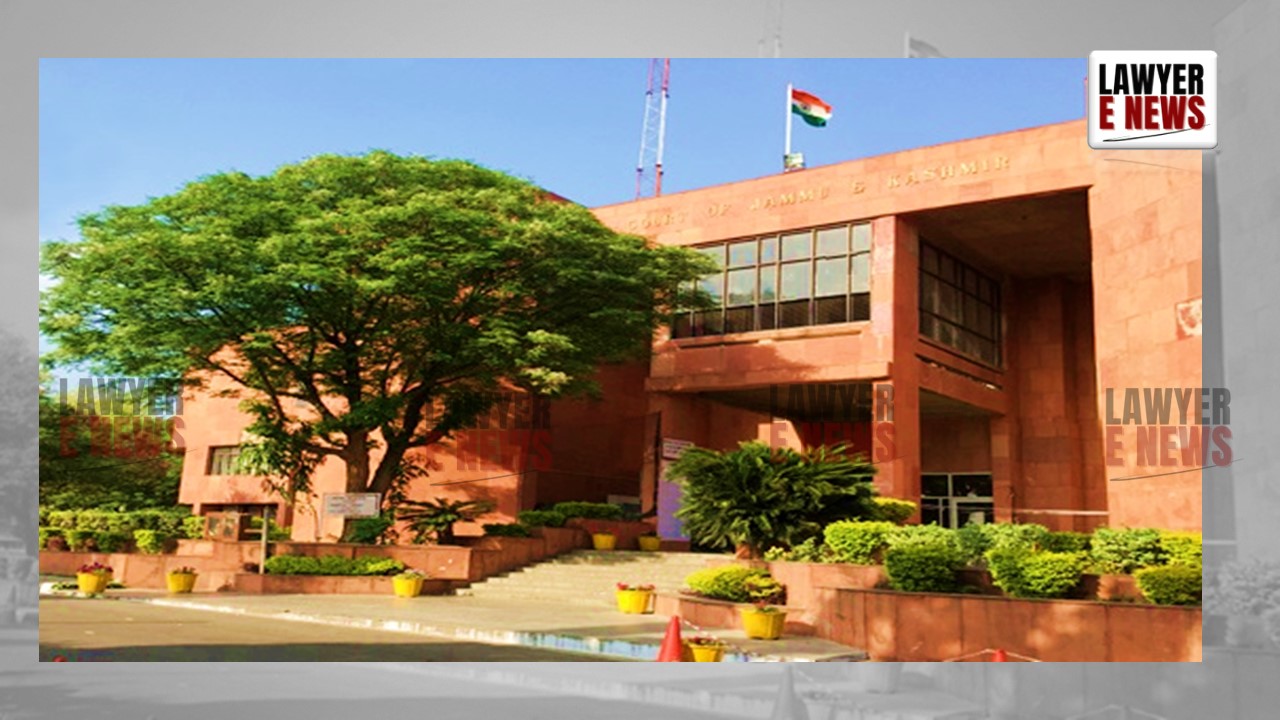-
by Admin
15 February 2026 2:36 AM



High Court of Jammu & Kashmir and Ladakh delivered a landmark judgment in CRM(M) Nos. 466/2024, 159/2024, and 206/2024, involving contentious allegations and counter-allegations between Ajay Kumar Sareen, a Public Prosecutor and Civil Judge-select, and Ragini Rajput, a government teacher, along with her husband, Rohit Krishan Bhat.
The Court quashed both FIRs filed by the parties, citing their abuse of criminal law as a tool to settle personal disputes. It highlighted serious lapses in police investigations and emphasized that justice demands factual coherence and impartiality.
The dispute originated from an incident on January 23, 2024. Sareen filed FIR 20/2024, alleging that Bhat assaulted him with an iron kada, inflicting injuries. Sareen claimed he was attacked due to longstanding enmity. However, the FIR failed to provide essential details, such as the motive or how Sareen knew Bhat's identity.
Days later, on February 1, 2024, Rajput filed FIR 24/2024, accusing Sareen of harassing her for months. She alleged that Sareen confronted her at her workplace and forcibly intercepted her vehicle, threatening her and pulling at her clothes. Rajput’s FIR came after multiple complaints to senior police officials, raising questions about its timing and intent.
Both FIRs involved serious allegations but presented conflicting narratives about the events of January 23, 2024, leading to simultaneous and poorly coordinated investigations.
Justice Rahul Bharti, presiding over the case, identified several critical issues:
1. Deficient Investigations: Both FIRs suffered from lackluster police investigations. FIR 20/2024 lacked specifics about the accused and failed to establish a coherent timeline. FIR 24/2024 was delayed by over a week, and the complainant’s statement was recorded nearly a month later.
"Investigations must connect facts coherently; anything less undermines the justice system," the Court remarked.
2. Abuse of Legal Process: The Court found that both parties misused the criminal justice system to pursue personal vendettas. It observed that the parties’ professional standings were weaponized to influence proceedings, creating a façade of victimization.
3. Inconsistent Testimonies: Witness accounts in both FIRs were contradictory. For instance, Sareen’s initial statements omitted key details about his assailant, only to later reveal specific information. Similarly, Rajput’s version of events differed significantly from her husband’s testimony.
4. Counter-FIRs as Retaliation: FIR 24/2024 appeared to be a retaliatory measure, filed after Sareen lodged his complaint. The Court noted the pattern of delayed reporting and the absence of urgency in the complainant’s actions, which undermined its credibility.
After a detailed examination of evidence and procedural lapses, the Court quashed both FIRs. It observed that neither party acted in good faith, and the police investigations lacked the rigor necessary for criminal proceedings.
The Court directed:
• Improved Investigation Protocols: The police must adopt stricter guidelines to ensure impartial and fact-based investigations, especially in cases involving public officials or legal professionals.
• Judicial Oversight: Courts must be vigilant in identifying and curbing attempts to exploit the legal system for personal vendettas.
Justice Bharti concluded:
“Justice must not be held hostage to personal rivalries or shoddy police work. The legal system demands integrity at every level.”
The ruling reinforces the principle that criminal law cannot be a weapon for personal vendettas. It also emphasizes the judiciary’s role in safeguarding justice from being derailed by frivolous and retaliatory litigation.
The case sheds light on the importance of impartial and meticulous police investigations, ensuring that the justice system remains a beacon of fairness and truth.
Date of Decision: December 26, 2024
